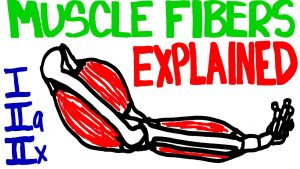How do you intermittent fast on the keto diet? Thomas DeLauer is here to explain the benefits of intermittent fasting for both men and women, and how the keto diet emerged to mirror the health benefits of fasting… without the hunger. Shop Thomas DeLauer’s keto picks → http://thrv.me/ZBuYot Learn more about the keto diet → http://thrv.me/PArLMg More keto recipes → http://thrv.me/AjCQ4X ABOUT THRIVE MARKET Thrive Market is on a mission to make healthy living accessible for every American family. We offer the world’s best organic and non-GMO products and deliver them to your door at 25-50% off retail. Subscribe for inspiring recipes and videos that make healthy living easier and more delicious. #thrivemarket #whatieatinaday #thomasdelauer —————————————————————————————————————- There’s keto and there’s fasting. And obviously two very different worlds, yet they have a common denominator. // what was discovered back in the 1920’s, was fasting was used to treat a lot of medical conditions, predominantly epilepsy. And they couldn’t really figure out why. They were like, Why are these patients having so much success with fasting? So they started digging in saying, Well what is it about fasting that actually is causing this amazing thing in these people? And over a couple years, by 1923 they found that the ketogenic diet, or they found that the ketones were the common denominators. They found when were fasting, they were producing these things called ketones. And they were like, well, what are these ketone things? And they did some more testing and they realized that when you deprive your body of glucose, of dietary carbs, your body creates those same ketones. So it was like, fasting created ketones, and depriving yourself of carbs created ketones. So aha! We finally found a way where these patients don’t have to starve themselves. // Now, because they work so hand in hand together they work harmoniously. You can go on a ketogenic diet, get your body used to utilizing those fats for fuel, then sort of deprive your body of calories for a short amount of time so that your body has no choice but to seek out stored body fat. So keto and fasting, it’s like they’re cut from the same cloth, but similar applications, but two very different approaches that can intertwined. When it comes down to how someone should fast, how long, things like that, you have to look at a lot of different equations. For example, men and women typically will fast a little bit differently. Women have a few more hormones that are changing. There’s different reproductive systems that have to be accounted for, and it’s a lot more of a complex system. So, I usually recommend women start with shorter fasts, like 12-14 hours and increase the length of their fast as they feel adjusted to it. It’s a little bit easier to feel a little bit lethargic when they start fasting simply because there are other mechanisms in place. Then, when it comes down to what your goals are. So if you’re looking for sort of a body composition response where you’re just looking to trim up or lose a little bit of body fat, I recommend 16, 18 hour fasts. Those are perfect and just do those a few times per week. It’s really not that hard, it’s a matter of going to sleep, skipping breakfast and then eating lunch. And the bulk of that benefit comes a little bit more so just from the calorie side of things. If you’re skipping breakfast and you’re pushing it back a little bit, you’re just likely to eat less food in that smaller eating window. So it’s a little bit of mind game with yourself, and you realize, wow, when I just push the time back in which I eat, I actually just eat a lot less, and you don’t change your eating habits a whole whole lot. Then of course there’s fasting for longevity reasons. When you start pushing your fasts beyond 16 to 18-20 hours. There’s a load of metabolic benefits that occur, but a load of genetic benefits that occur. You have high degrees of autophagi. You have high degree of other things that are going on in your body at a genetic level, where your genes are actually switching a little bit, to become a little bit more, for lack of a better term, stress proof. Compressed eating window versus fasting, they’re pretty darn similar. Some will say that time restricted eating is more like 12 hours, where you’re just like, hey I’m just consolidating my eating windows, but at the end of the day, they’re kind of the same thing. Fasting in a sense, it’s focusing on one over the other. I always look at it like, time restricted eating is focusing on the eating window, where fasting focuses on the fasting window, but at the end of the day, when you back up, they’re kind of the same thing.

Intermittent Fasting & Fasting Video – 27
- Post author:
- Post published:May 14, 2021
- Post category:Uncategorized
- Post comments:0 Comments
You Might Also Like

Impact of coronary CT angiography on planning of bifurcation PCI

Leg Curl-2

Spa Products Video – 2

How To Know If You Have Gynecomastia? – 5 Gynecomastia Symptoms!

HIGH BLOOD PRESSURE HOME REMEDIES – THE ALL NATURAL WAY!!!

The Key To A Wide And Powerful Looking Upper Body
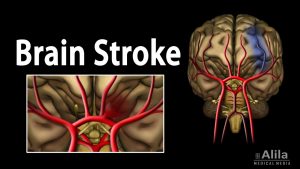
Brain Stroke, Types of, Causes, Pathology, Symptoms, Treatment and Prevention, Animation.

What Causes Insulin Resistance?

How to test & monitor your Cholesterol levels at home

Awesome Nutrition Plan

Definition of Sport

Lymph node, thyroid examination
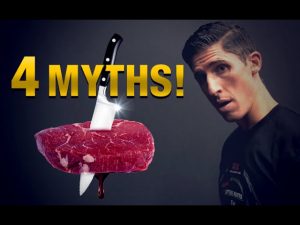
4 Popular Diet Tips – YOU SHOULD NEVER FOLLOW!!

Is Whey Protein SAFE at Age under 18 | Guru Mann | Health & Fitness

BCAA Supplements – What Are BCAA’s And How Do They Work? | GuruMann Review

Hypervitaminosis Video – 2

Organ Transplantation Surgeries Video – 1
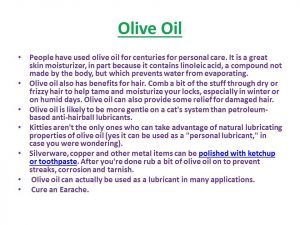
Uses of Some Lipids

Holozoic Nutrition

Close Grip Seated Row

Digestive System Song

How Do Bodybuilders Get Lean Before Competition?

Stability Ball Reverse Hyper Extension
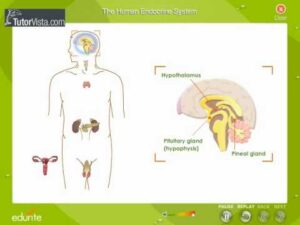
The Human Endocrine System

6 Signs the Weight Gain is Hormonal with Dr. Rob

Preparation for a BodyBuilding Competition – 20 WEEKS OUT! World Champion Explains

Standing Dumbbell Calf Raises – Calf Exercise – Bodybuilding.com

Breastfeeding and Common Breast Conditions – Obstetrics | Lecturio

Yoga Warm Up Exercises For Beginners | 5 Simple Yoga Warm Up Stretches Before Workout
Kidney Protective Medicine-Telmisartan

Intense Pyramid Warm Up – Circuit Training Ideas

5 foods to eat after a workout and why

Chronic Kidney Disease is Identified by a Blood Test For Creatinine

Long bone formation

Is It Safe To Drink Your Urine?

How to Do a Dumbbell Biceps Curl | Arm Workout

What does intensity mean?

Cholesterol Medicine Information – Different Ways to Lower Your Cholesterol Levels

Phil Heath’s Cable Hammer | Bicep Exercise #3

MusclePharm BCAA 3:1:2 amino acids capsule review

Chest Exercises: Bench Press
